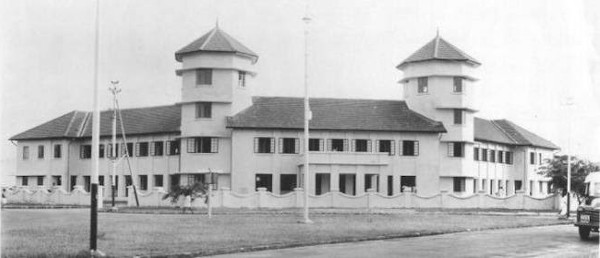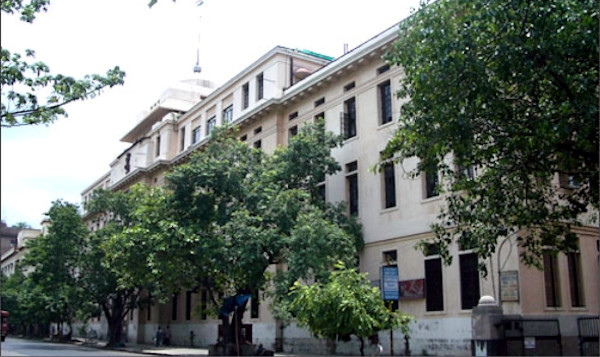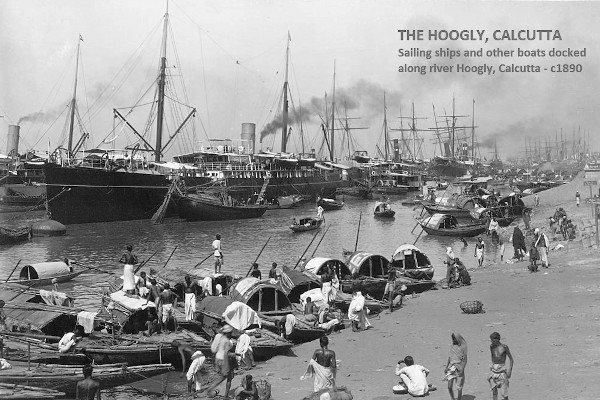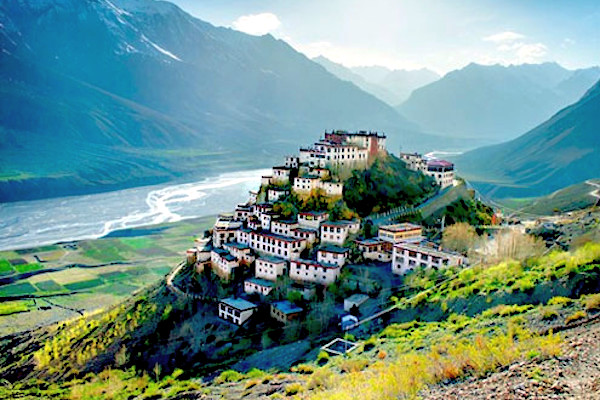Service Memory Corner: Customs and Central Excise
Editor's Note: These are the memories of the Customs and Central Excise officers of the Indian Revenue Service.
- Manickavasagam, batch of 1971: Honesty is the Best Policy
- Subhash Mathur, batch of 1971: Selling Trinkets to Members of Parliament
- Manickavasagam, batch of 1971: Revenue official harks back to his fauji days
Honesty is the Best Policy

Manickavasagam, or Vasagam for short, graduated as a civil engineer in 1964. He joined the Indian Army in 1965 and became a 'Fauji'. During his career with the armed forces, he served in Leh, Ladakh and Poona (now Pune).
Vasagam joined Indian Revenue Service (Customs and Central Service) in November 1971. Switching over from olive green to civvies was difficult initially but time was a healer. Upon superannuation, he joined the Central Administrative Tribunal and served for the 5 years and 9 months as Administrative Member.
Vasagam is a prolific writer and has already penned three novels in Tamil and hopes to finish the fourth essay within a year. He headed a team which produced a CD-ROM on the life and teachings of Adi Sankara.
These days, Vasagam is leading a retired life with his spouse. His elder son is a computer engineer who lives in America while the younger one is based in Bengaluru. Vasgam is blessed with two grandchildren.
In Tamil, Manickam means "ruby" while Vasagam means “a good phrase”. The name Manickavasagam belongs to a saint poet of 8th century AD in the then Pandya Kingdom. He was the Prime Minister to the King who later on resigned to become a saint. His collection of hymns “Thiruvasagam” is a very popular book amongst the Saivites even today. This is my answer to those who ask, “What’s in a name?“
When I joined the Indian Revenue Service in 1971, I was given the seniority of the ’66 batch. This happened because of my service in the army which was a benefit given to a few of the ’71 batch mates as well. The ante- dating of seniority put a heavy burden on us. I had to match the knowledge and experience of my ’66 batch colleagues. It was a daunting task but I managed it well through sheer hard work; I became a workaholic!
In 1975 or thereabouts, I was working in Cochin Customs and Central Excise Collectorate, holding dual charge as Headquarters Assistant Collector (HAC) as well as Assistant Collector Preventive (AC (P)). Mr. S.V. Iyer was the Collector.

Cochin Customs House
Being HAC and AC (P) was a tedious job. After the declaration of the Emergency, the work load in terms of recruitment, acquisition of vehicles, wireless equipment, boats etc, had increased enormously. In addition, there were a plethora of court cases filed by smugglers detained under the Maintenance of Internal Security Act of 1971 (MISA) and later on under the Conservation of Foreign Exchange and Prevention of Smuggling Activities Act of 1974 (COFEPOSA). To say the least, our hands were full.
In a short time, I had earned the trust of the Department and public. The following small incident is an example.
One fine morning as was usual Mr. Iyer called me over the intercom to come over to his room. (I remember my Allahabad days when the sepoy would come to my room, salute and then say “Collector sahib aap ko yaad karta hai.”)
I went to his room armed with my scribble pad and pen. “Good morning, sir,“ I said as I entered the room.
Mr. Iyer was in good spirits and lighter mood. He gestured me to take a seat. “What, Vasagam?“ He mentioned the name of a top smuggler who was detained under preventive detention and lodged in Central jail, Trivandrum. “He appears to be very fond of you. He wants you to meet him and specially you and nobody else.“
Collector was holding an inland letter, received by him, after the necessary deletions by the jail authorities (censors) and it was written in Malayalam lingo. Although I could not read or write, I could follow the spoken Malayalam lingo. He read it for me.
The detainee had requested the Collector to send me to Trivandrum, so that he can give more details about other people who were still at large!
Mr. Iyer asked me, “Are you willing to go?”
I replied “Why not?” I further added: “I don’t know him and I have not even seen him and I don’t know how he has come to know me.“ I was surprised.
Mr. Iyer, the gentleman that he was said, “Vasagam, you may not know him. But these people know about us. Our reputation travels faster than electrons. So, go ahead. Listen to him. Tie up with AC Trivandrum and go.“
Well, on that day I learnt the lesson “Honesty is the best policy.”
Thereafter I met the detainee smuggler at Central jail in Trivandrum, taped the entire conversation and made good use of it.
What followed is a different story.
Here I say adieu.
Selling Trinkets to Members of Parliament

Subhash Mathur was born and brought up in small towns in Rajasthan. During his school and college education at Jaipur, he was keenly involved in sports, journalism and public speaking. His civil services career has given him a platform for spreading his ideas about modernising tax administration to benefit the common man. Post retirement he is devoting his energies, along with his wife Tilak, to public and humane causes.
My first posting was with Calcutta Customs House. I joined in November 1973. During my four-year stint I held many charges including rummaging, exports, Nepal transit goods, disposal of goods and import assessment groups.

Calcutta Customs House
This incident relates to my stint with the section dealing with disposal of confiscated goods.
Those days imported goods like watches, cassettes and cassette players; nail cutters; two in ones and other trinkets were seized in large quantities. And naturally they were ‘hot’ in demand. Perishable goods like craft cheese tins; sardine and tuna tins, chocolates etc. were disposed off even before they reached the disposal shed.
Collector Lal had a standing lien on fifty percent of the craft cheese tins. My quota was just two per seizure if more than a dozen were seized, else one.

It was through the Hooghly river that the East India company sailed into Bengal and established their trade settlement, Calcutta, as the capital of British India. For a long time, Calcutta Port was the biggest in India.
But my story is not about craft cheese. Or about Collector Lal.
It is about the visit of a Public Accounts Committee. Apparently, PAC was visiting Calcutta for an oversight inspection of trend of revenue collection or some such mumbo jumbo. Not important really.
As soon as the Fax reached the Customs House, I was alerted about the impending visit. In turn, I instructed Superintendent Dias to stop sales of fancy confiscated goods much in demand amongst the local VIP circle. I wanted a good collection of popular fancy items for the MPs. Twelve were expected but only nine came.
Sure enough, after lunch the MPs made their way to the disposal shed for picking up the goodies. It was a sight to behold. Tough-nut politicians eagerly selecting items. Jumping from box to box. Rummaging one box after another. Quarrelling over some hot items like Seiko automatic with day and date watches. Nail cutters were in demand but we had plenty of them. There was intense wrangling over ‘two-in-ones’.
‘Hey, I saw that first! It’s mine!’
‘No, I picked it first! Now it’s mine.’
The circus continued for over an hour. Jockeying was intense. Buying imported large number of nail cutters was prestigious. Revenue collection oversight took a back seat.
One MP in particular had an acute problem. He had picked lot of stuff but had no cash to settle his bill. He offered to pay partially.
‘Take my word. Trust me. I will pay as soon as I hit Delhi. Will send the cheque. Pronto!’
‘Sorry, the rules don’t allow that. Entire bill has to be settled in full before goods could leave the disposal shed. And, in any case, rules do not allow us to accept outstation cheques.’
Cash and carry was the rule. Simple.
‘Or, Sir, purchase only what you can pay for,’ I suggested.
The MP was livid. He started gesticulating and shouting.
‘How dare you?’
MPs during the Emergency days were like Lords! I didn’t like the situation getting out of hand. The MP could easily complain against me with ‘mirch masala’ added. I exactly wasn’t looking for a sudden punishment transfer. His word against mine! No way would I win that one.
I softened my stand. I escorted the MP to my chamber. Ordered a coffee with biscuits at my expense. (Thirty five paise.) Went out of the room and consulted a senior colleague for a way out.
He advised me to stay cool. Pay for the goods myself. It was about thirteen hundred. (My monthly salary was less than that!) Tell him to send the cheque in your name and resolve. Diffuse: was his advice. No gain in a quarrel.
I went back and did just that.
Do you think that MP ever sent that cheque to me? No prizes for guessing.
Harking back to my fauji days

Manickavasagam, or Vasagam for short, graduated as a civil engineer in 1964. He joined the Indian Army in 1965 and became a 'Fauji'. During his career with the armed forces, he served in Leh, Ladakh and Poona (now Pune).
Vasagam joined Indian Revenue Service (Customs and Central Service) in November 1971. Switching over from olive green to civvies was difficult initially but time was a healer. Upon superannuation, he joined the Central Administrative Tribunal and served for the 5 years and 9 months as Administrative Member.
Vasagam is a prolific writer and has already penned three novels in Tamil and hopes to finish the fourth essay within a year. He headed a team which produced a CD-ROM on the life and teachings of Adi Sankara.
These days, Vasagam is leading a retired life with his spouse. His elder son is a computer engineer who lives in America while the younger one is based in Bengaluru. Vasgam is blessed with two grandchildren.
It was the end of March 1968. I was in Leh, posted beyond the normal tenure of two years. I was doing a project and my Commanding Officer (CO) requested me to stay for some more months to complete it. I agreed but fate had other design to play.
The then GOC of the Division was a stickler for rules. I was doing my morning PT with troops, wearing a white half pant and jersey. That was my third winter and I was confident nothing will happen. The temperature must have been around minus five degrees. Never mind that I was as fit as a fiddle.
The GOC was on his rounds in his Jonga jeep. He noticed our company from a distance and found an officer running around improperly dressed. Obviously, he was angry and asked the ADC to find out who was doing PT in violation of rules, with inadequate protection - a serious violation of dress code. One could get easily pulmonary edema (lung disease).
Within half an hour I got a call from ADC. I was officiating as OC. He got the details and promptly reported to the GOC. My CO (Lt. Col) got a call to meet the GOC by 9AM. He went and reported.
Needless to say, after hearing the details from my CO, GOC gave him a dressing down. How on earth was an officer retained in a high altitude area beyond the stipulated two years? He was told to get me out of Leh in a fortnight. He was not willing to listen to any excuses.
My CO was crestfallen and spoke to me on reaching his office. I felt sorry for my foolish bravado. But my posting orders to Poona, Bombay Engineers Group and Centre, came like a bullet shot.
PS: The project was completed in August 1968. First and only micro hydroelectricity scheme at 14,000 ft above sea level producing one MW electricity. First and the last in the world. We could work only for about five months in a year. It was a pilot project of the army (then 15 Corps). Army Sappers can do wonders!

Leh Ladakh
Comments
Nostalgia
Great nostalgia. We need more. The title is really intriguing. Acronyms need to be explained.
Update to the story
Acronyms have been expanded to full form in the story itself. We welcome feedback.
-- Editor, Subhash Mathur
Selling trinkets.........
I had a similar experience. Estimate Committee headed by late Mr. Madhu Dandavate visited CH Cochin. After the discussion the members rushed to the sales shop. One member evinced interest in Persian Carpet, priced rather high. He did not have so much money and promised to send it asap. The OIC rushed to me for advice. I went down to the shop and took the member away from others. Explained procedure and asked him to send a DD for the amount. I promised him that the carpet will be sent well packed. He agreed and sent aDD to get the carpet. All is well that ends well!
Add new comment